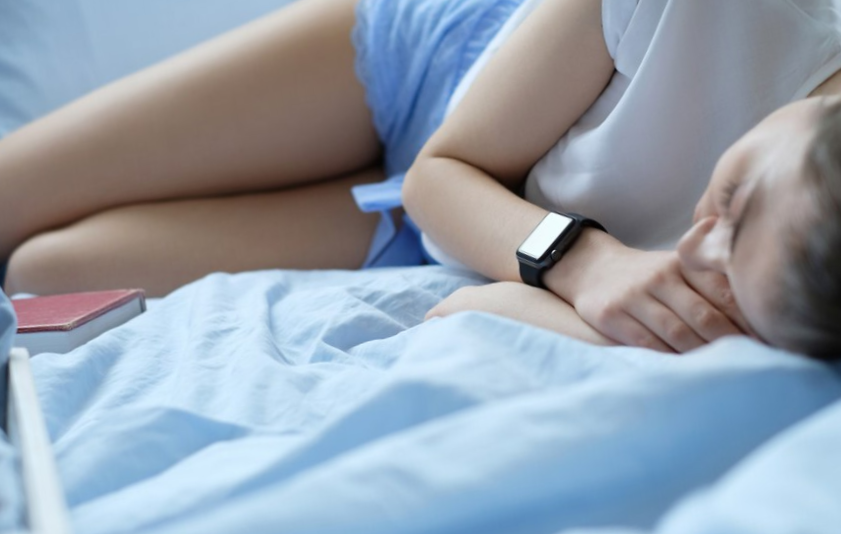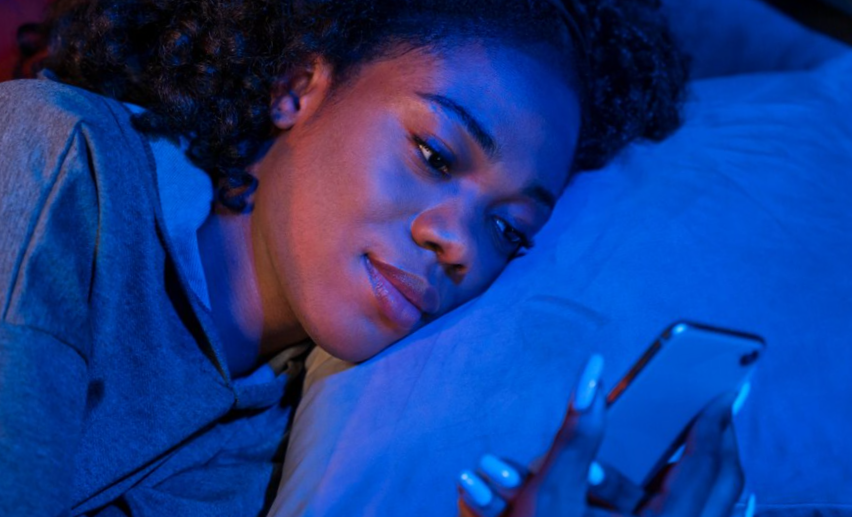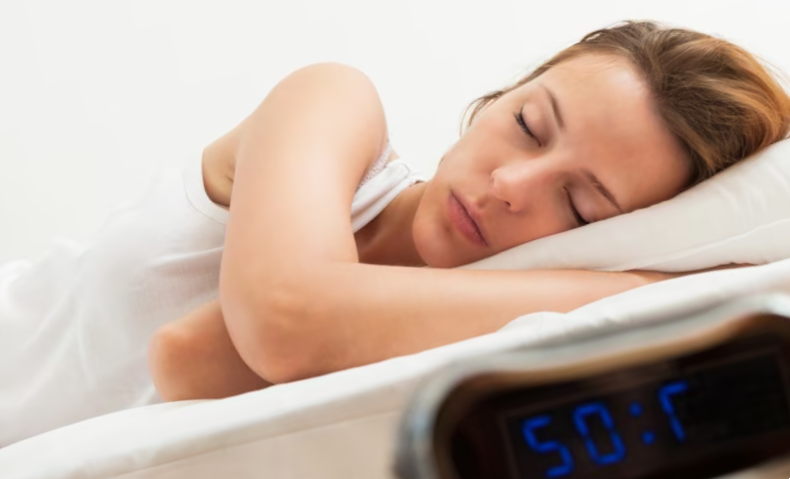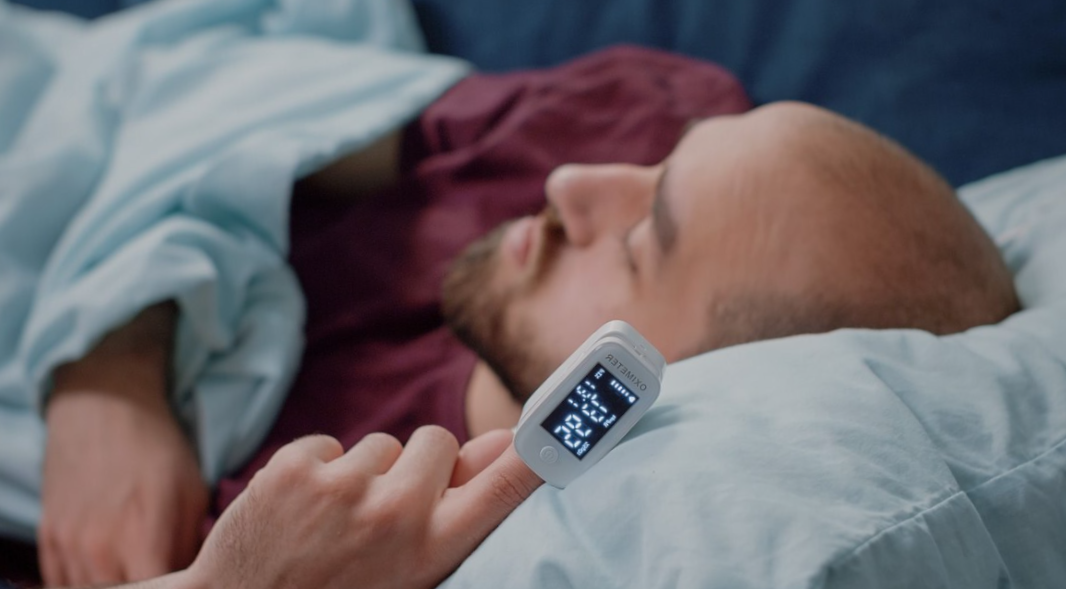Sleep is one of the most essential aspects of human health. It affects our physical, mental, and emotional well-being. However, many people struggle to get enough quality sleep due to various factors such as stress, lifestyle, and environment. Fortunately, technology can help us improve our sleep quality and quantity by providing us with tools to track and optimize our sleep patterns. In this article, we will discuss how sleep technology can help us monitor and enhance our sleep quality, how blue light from electronic devices can disrupt our sleep, and how we should use technology judiciously before bedtime.
What We'll Cover
How Sleep Technology can Help Track and Improve Sleep Quality

One of the ways that technology can help us improve our sleep is by providing us with wearable devices that can track our sleep patterns and provide us with insight into our sleep quality. These devices include smartwatches and fitness trackers that can measure various parameters such as heart rate, blood oxygen level, body temperature, and movement during sleep. These devices can also sync with smartphone apps that can analyze the data and give us feedback on how well we slept, how much deep sleep we got, how many times we woke up, and how long it took us to fall asleep. Some of these apps can also provide us with personalized tips and recommendations on how to improve our sleep habits based on our sleep data.
Another way that technology can help us track our sleep quality is by using smartphone apps that use the phone’s accelerometer to track our sleep movements. These apps work by placing the phone on the bed or under the pillow and detecting the vibrations caused by our body movements during sleep. These apps can then use algorithms to estimate our sleep stages and duration and provide us with a sleep report in the morning. Some of these apps can also use sound or vibration to gently wake us up at the optimal time based on our sleep cycle.
The benefits of using sleep technology to track and improve our sleep quality are manifold. By having access to objective and accurate data on our sleep patterns, we can better understand how our lifestyle choices affect our sleep quality and make necessary adjustments accordingly. For example, we can see how caffeine, alcohol, exercise, diet, or stress influence our sleep quality and duration and modify them accordingly. We can also see how our sleep quality affects our mood, energy level, productivity, and performance during the day and take steps to improve them. Moreover, by using sleep technology to monitor and optimize our sleep quality, we can also prevent or reduce the risk of developing various health problems associated with poor or insufficient sleep such as obesity, diabetes, cardiovascular disease, depression, anxiety, impaired immunity, and cognitive decline.
Blue Light from Electronic Devices can Disrupt Sleep

While technology can help us improve our sleep quality in many ways, it can also have a negative impact on our sleep if used improperly or excessively before bedtime. One of the main culprits of disrupting our sleep is blue light emitted from electronic devices such as smartphones, tablets, laptops, TVs, and LED lights. Blue light is a type of visible light that has a short wavelength and high energy. It is beneficial during the day as it helps us stay alert, focused, and energized. However, at night, it can have the opposite effect as it interferes with our body’s natural sleep-wake cycle.
Melatonin, a hormone generated by a small gland in the brain called the pineal gland, regulates our body's natural sleep-wake cycle. Melatonin levels rise in the evening when the sun sets and decline in the morning as the sun rises. This helps us feel sleepy at night and awake during the day. However, when we are exposed to blue light from electronic devices before bedtime, it suppresses the production of melatonin and delays its release into the bloodstream. This makes it harder for us to fall asleep and reduces the quality and quantity of our sleep.
Blue light's poor impact on sleep quality and quantity can have major ramifications for our health and well-being. Blue light exposure before bedtime has been proven in studies to diminish the quantity of deep sleep we experience by up to 50%.Deep sleep is the most restorative stage of sleep that helps us repair our tissues, consolidate our memories, regulate our hormones, and boost our immune system. Lack of deep sleep can impair these functions and lead to various health problems such as obesity, diabetes, cardiovascular disease, depression, anxiety, impaired immunity, and cognitive decline. Moreover, exposure to blue light before bedtime can also affect our mood, energy level, productivity, performance, creativity, learning ability, concentration, and decision making during the day.
Technology Should be Used Judiciously Before Bedtime

Given the detrimental effects of blue light on our sleep quality and quantity, it is important that we use technology judiciously before bedtime and create a relaxing bedtime routine that excludes the use of electronic devices. One of the ways to do this is by setting a digital curfew at least an hour before bedtime and avoiding any activities that involve the use of electronic devices such as checking emails, browsing social media, watching TV, playing video games, or working on the computer. Instead, we should engage in activities that help us unwind and relax such as reading a book, listening to soothing music, meditating, doing yoga, or taking a warm bath.
Another way to use technology judiciously before bedtime is by keeping electronic devices out of the bedroom and creating a sleep-conducive environment. This means removing any sources of blue light such as smartphones, tablets, laptops, TVs, and LED lights from the bedroom and using curtains, blinds, or shades to block any external light from entering the room. We should also make sure that the temperature, humidity, noise level, and ventilation in the bedroom are comfortable and conducive to sleep. We can also use technology to enhance our sleep environment by using devices such as air purifiers, humidifiers, fans, white noise machines, or aromatherapy diffusers that can create a pleasant and relaxing atmosphere in the bedroom.
Final Thoughts
Technology can be a powerful ally in helping us improve our sleep quality and quantity by providing us with tools to track and optimize our sleep patterns. However, technology can also be a potential enemy if used improperly or excessively before bedtime as it can disrupt our sleep by exposing us to blue light that interferes with our body’s natural sleep-wake cycle. Therefore, we should use technology judiciously and create a healthy balance between using it to enhance our sleep quality and avoiding it to preserve our sleep quality. By doing so, we can reap the benefits of technology for our sleep and health without compromising them.
The responses below are not provided, commissioned, reviewed, approved, or otherwise endorsed by any financial entity or advertiser. It is not the advertiser’s responsibility to ensure all posts and/or questions are answered.






